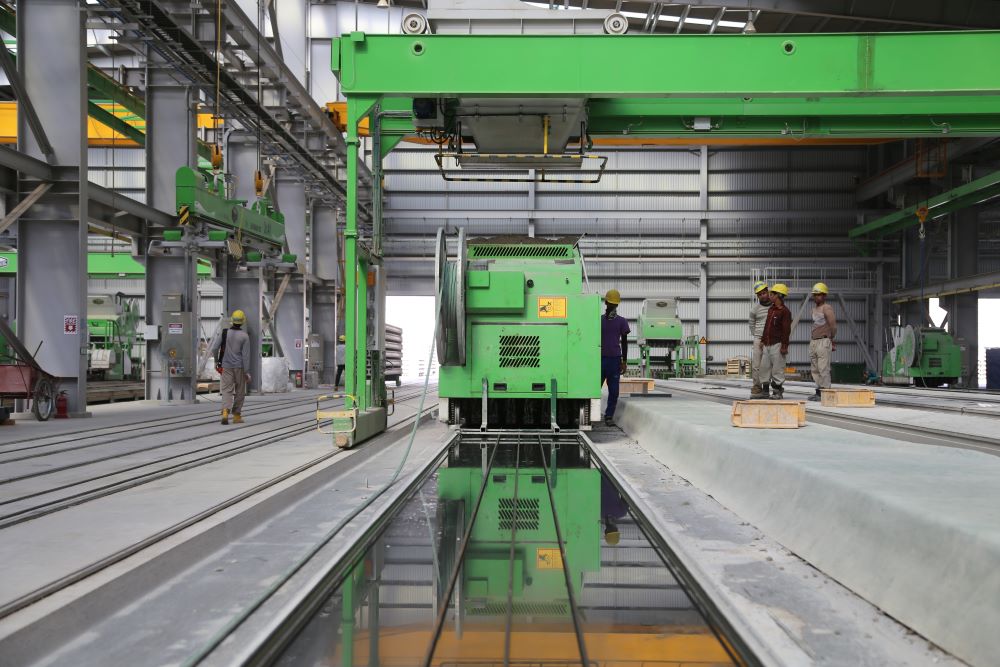From the earliest days of manufacturing, there has been an ongoing drive to improve—whether that means building better products, optimizing processes and resources, or developing new technologies. While the manufacturing world looks far different than it did even a year or two ago, innovation shows no signs of slowing down. If anything, companies are innovating more than ever before, transforming their industries.
The best way to keep up with the latest trends and technologies, network with industry leaders, and experience a wide range of viewpoints—is to attend an advanced manufacturing conference (or, better yet, a cross-sector innovation conference like Rally).
To get your mind turning, we’ve put together this brief article to highlight some of the emerging technologies that comprise an advanced manufacturing system, including examples of advanced manufacturing technologies and the industries that benefit from them.
What Is Advanced Manufacturing Technology?
Manufacturing.gov defines advanced manufacturing technology as the “use of innovative technologies to create existing products and the creation of new products.” Additionally, advanced manufacturing can refer to production activities that leverage certain types of “information, automation, computation, software, sensing, and networking.”
In other words, “advanced manufacturing” is a somewhat unspecific term, probably best thought of as more of an ongoing initiative to…
- Make manufacturing systems and processes more efficient.
- Leveraging intelligent production techniques and technologies, including well-designed Information and communication technology (ICT) strategies.
- Create a more effective overall organization by optimizing resource usage, including the adoption of new technologies to coordinate and align processes.
As far as distinguishing advanced manufacturing vs traditional manufacturing is concerned, the distinction isn’t as important or pronounced as it used to be. This is mainly due to the increasing adoption of advanced manufacturing technologies, even in industries that have historically been more tech-averse.
What Is Meant by Industry 4.0 in Manufacturing?
Industry 4.0 is a term you’ll likely encounter the deeper you dive into advanced manufacturing technologies. It refers to a collection of technologies and strategies, essentially overlapping with advanced manufacturing. Similarly, “smart factories” leverage these technologies to improve their operations.
According to IBM, some of the most prominent Industry 4.0 technologies include the use of “Internet of Things (IoT), cloud computing and analytics, and AI and machine learning.” Using sensors and software, manufacturing facilities can identify areas for future optimization and make better, more data-driven decisions.
What Are the Most Common Advanced Manufacturing Industries?
Some of the most prominent examples of advanced manufacturing technologies can be found across a wide range of industries, such as:
- Aerospace
- Automobiles
- Electric vehicles
- Energy
- Medical devices
- Pharmaceuticals
- Prototyping
- Robotics
When companies within these industries—and an increasing number of others—integrate advanced manufacturing technologies into their operations, they are able to…
- Make their processes more productive, efficient, and sustainable.
- Increase overall productivity and product quality
- Develop innovative new products, or new ways to source and produce existing goods.
What Are Some Different Types of Advanced Manufacturing Technologies?
The most commonly-adopted advanced manufacturing technology examples include:
- AI and machine learning
- Cloud computing
- Cybersecurity
- Digital Twins
- Edge computing
- The Internet of Things (IoT)
Let’s say you’re among the increasing number of manufacturing companies with “smart factory” initiatives. How can these Industry 4.0 technologies help?
- In the context of Industry 4.0, AI and machine learning can be used to, among other things, “create insights providing visibility, predictability, and automation of operations and business processes.” This can help with resource optimization, as well as proactive or even preventive troubleshooting and maintenance.
- Cloud computing systems provide a forward-thinking framework for better connectivity and integration through the entire supply chain, collecting and organizing key data to make timely and informed decisions and enable greater scalability.
- With the increasing reliance on cloud computing and overall digital transformation occurring in manufacturing, prioritizing cybersecurity is a must.
- The creation of digital twins allows manufacturers to create virtual replicas of their supply chains and production processes. This provides a sort of “testing ground” for new ideas, so their impact can be simulated before major changes are made. This helps prevent unforeseen issues from throwing a proverbial wrench in the works.
- Edge computing can preserve bandwidth and shorten the time between developing insights from data and taking action. It can reduce security risks and improve decision-making by streamlining the collection, integration, and evaluation of key data throughout the supply chain and production cycle.
The increasing versatility of Internet of Things (IoT) compatibility makes it a great starting point for any manufacturing organization looking to more accurately and efficiently collect, analyze, and share a wealth of data—without requiring manual effort.
Ready to Innovate? Attend Rally 2023!
An advanced manufacturing conference is the perfect opportunity to gain valuable insights from industry leaders, network with a wide range of potential partners or vendors, and inspire company leaders to prioritize innovation and advancement. And if you were to Google something like “advanced manufacturing conferences near me,” you’d probably find plenty of options.
However, these conferences are often limited in terms of true thought leadership, innovation, or opportunities for meaningful collaboration. This is for one primary reason: their focus is too narrow. Sure, it’s valuable to hear how others in your industry are working together and driving progress, but the world is increasingly connected, and manufacturing rarely occurs in a vacuum.
What’s better than a run-of-the-mill advanced manufacturing conference? One that brings together participants from a wide range of industries and prioritizes real collaboration. In other words, Rally’s one-of-a-kind, cross-sector conference. It’s organized into six distinct “innovation studios,” which essentially act as theme-driven learning tracks, including:
To learn more about what you can expect at Rally ‘23, you can take a look at the event agenda here. When you’re ready, there’s no better time than now to register for this year’s inaugural event.
